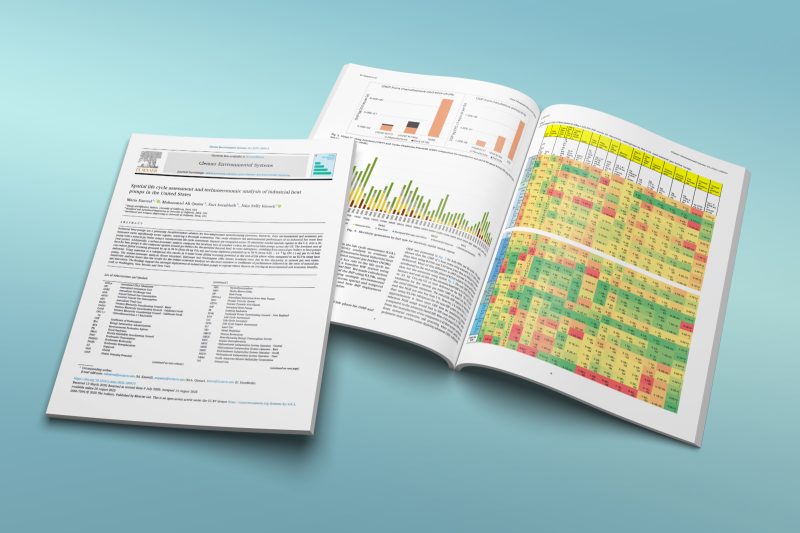
A new paper in Cleaner Environmental Systems, led by Maria Kanwal, Fulbright Scholar and recent EGG PhD graduate, and co-authored by Muhammad Ali Qamar, EGG PhD candidate; Kurt Kornbluth, Director of the UC Davis Program for International Energy Technologies and D-Lab; and Kelly Kissock, EEI Faculty Director, explores the environmental and economic potential of industrial heat pumps (IHPs) as a decarbonization pathway for U.S. manufacturing.
The study provides one of the first spatial life cycle assessments of IHPs in the United States, comparing their performance with natural gas boilers across 25 electricity regions and over a 20-year period. Findings show that in many regions, switching to IHPs can cut global warming potential by up to 95% and ozone depletion potential by nearly 90% per unit of heat delivered. The study also highlights the role of refrigerants: using ammonia instead of commonly used hydrofluorocarbons reduces end-of-life climate impacts by a factor of nine.
On the economic side, the team found that IHPs are already competitive with natural gas boilers in much of the country, especially in states like Washington, New Mexico, and New York where electricity prices and grid mix align favorably. The authors conclude that IHPs represent a strategic opportunity to advance industrial decarbonization while delivering cost savings in the right contexts.
